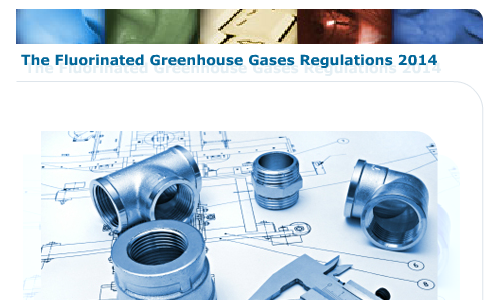FG01 FGAS Regulations Category 1
To prepare Category I engineers for the new theory and knowledge test for F- Gas certification – City & Guilds 2079.

Topic Objectives:
By the end of this topic you will be able to:
- Describe the International System of Units (SI) applicable to the refrigeration industry
- Explain reasonable operating temperature differences for condensers and evaporators.
- State the four stages of the basic vapour compression cycle, and describe their structure and function.
- Explain the relationship between pressure and temperature, and its effect on the heat transfer properties of a refrigerant.
- Explain how heat is transferred during the evaporation and condensation stages of the vapour compression cycle.
- Define the terms sensible heat, latent heat, subcooling and superheat.
- Explain how the phase change of zeotropic fluids is different to standard single substance or azeotropic blend refrigerants.
- Describe the characteristics of zeotropic refrigerants.
- Explain how key international Protocols and Regulations directly affect the refrigeration industry.
- Describe the functionality, advantages and disadvantages of components used in refrigeration/air conditioning systems.
- List the contents required in plant/system records
- Describe the hazards associated with handling F Gas refrigerants.
- Explain the precautions to be adopted when handling different F Gas refrigerants.
- International System of Units
- Vapour Compression Cycle
- General characteristics of zeotropic blends
- Protocols and Regulations
- Ancillary components
- Maintaining records
- Refrigerant handling hazards
- Quiz
Contact Star Learning Solutions for access.
FGAS Regulation Courses
These top quality courses in the F-Gas Regulations for individual certification in categories I and II will prepare you for the theoretical underpinning knowledge required to obtain the new F-Gas Certification regarding stationary refrigeration, air-conditioning and heat pump equipment. The courses also contain different banks of questions to choose from in order to practice for the actual theoretical test.
- Contains all the theoretical knowledge you will need to know in a summarised, understandable and easy to follow format, full of interactive content, animations and a glossary of terms.
- Familiarises you with the online exam method:Prepare yourself before undertaking the official exam without pressure and at your own pace and convenience, for as many times as you feel necessary.
The F-Gas qualification covers 4 different categories of personnel according to their activity:
- Category I – covering service, maintenance, installation, commissioning and leak checking of stationary RAC equipment.
- Category II – covering activities on RAC equipment with a charge of less than 3kg (or 6 kg if hermetically sealed).
- Category III – covering recovery activity only.
- Category IV – covering non-invasive leak-checking.
Choose the online course that fits your working activities.
The content of this course has been independently certified as conforming to universally accepted Continuous Professional Development (CPD) guidelines. On successful completion of the courses you will get a CPD Diploma certified for Continuing Professional Development by The Construction CPD Certification Service and The Chartered Institution of Building Services Engineers.
Please note, this course is not a full qualification. To obtain a qualification you will be required to undertake additional training and/or assessment at any of our Star Refrigeration branches across the UK in Aberdeen, Bristol, Derby, Glasgow, Leeds, London, Manchester, Newcastle, Oxford. Click on the link to find more about the qualification F-Gas Certification – City & Guilds 2079.
Duration
3 – 10 hours to complete (depending on learning speed).
Target Audience
Anyone interested or working with refrigeration, air conditioning, heating and CO₂ refrigeration systems or users seeking to prepare for the theory element of the F-Gas Certification specified under the European F-Gas Regulation – City & Guilds 2079. The modules within this course can be used either as induction, awareness, refresher and foundation training.
Entry Requirements
There are no entry requirements.
